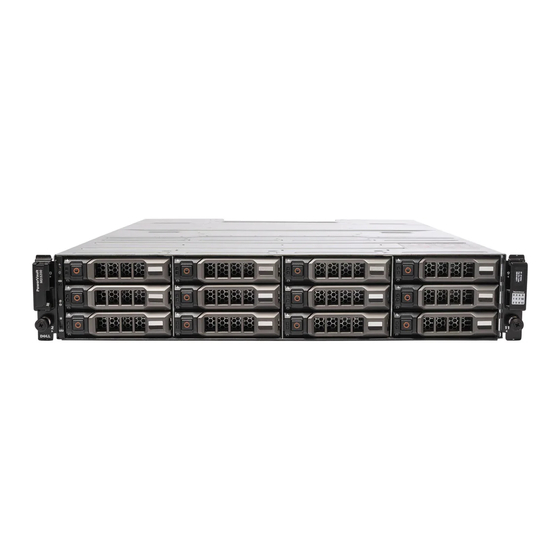DELL PowerVault MD3200i/MD3220i Technical Guide Book
Advantages of iSCSI technology include:
• Expansive Reach
As a routable transport with no distance limitations, IP SANs can be located almost
anywhere. The reach of a SAN throughout the organization is most often limited by the
distance restriction of the interface. iSCSI removes these distance limitations to limitless
boundaries and extends its scope well beyond the corporate data center to remote locations
as well.
•
Minimal Investment
iSCSI allows businesses to control their storage expenses without completely retro-fitting
their existing network. iSCSI creates IP-based SANs which allows organizations to capitalize
on components of their existing IP infrastructure by delivering block based storage across an
IP network. Organizations do not have to invest in a new storage-only infrastructure, such as
with FC which can be costly
•
Enormous Knowledge and Experience Base
iSCSI allows almost all organizations to capitalize on existing IT skill sets to create IP-based
SANs as in-house networking expertise is standard throughout most companies today. An
end user does not have to learn a new networking protocol and go through extensive and
sometimes expensive training, such as with FC. As a mature, well-understood technology
with a broad range of proven management tools, iSCSI is easily deployed by administrators
with LAN experience.
6Gb Serial Attached SCSI (SAS 2.0)
SAS provides a scalable point-to-point topology capable of addressing storage connectivity at many
levels. As SAS enters its second generation, the standard is evolving to enable better bandwidth
utilization, easier management mechanisms, and network robustness.
6Gb/s SAS 2.0 not only doubles the current data transfer rate it provides standardized zoning, self-
discovery, and self-configuration methods to expanders. This makes larger and more complex
topologies easier than ever to implement.
Key features of SAS 2.0
•
6Gb/s SAS Signaling – doubles the transfer rate from 3Gb/s to 6Gb/s
•
DFE (Decision Feedback Equalization) – increases cable limit to 10m ( 2 – 4 is typical)
•
Supports SAS mini connectors (SFF-8088 and SFF-8087)
•
SSC (Spread Spectrum Clocking ) – ease of design implementation – reduce peak amplitude of
radiated emissions
•
Supports SED (Self-Encrypting Drive) with Instant Secure Erase
nd
•
Delivers 2
generation SAS Discovery
•
Standardized Zoning
•
Expanded to 256 devices
•
Discovery executed by SAS Expanders
•
Reduces time to discover large topologies
4

